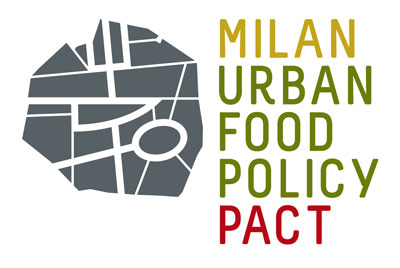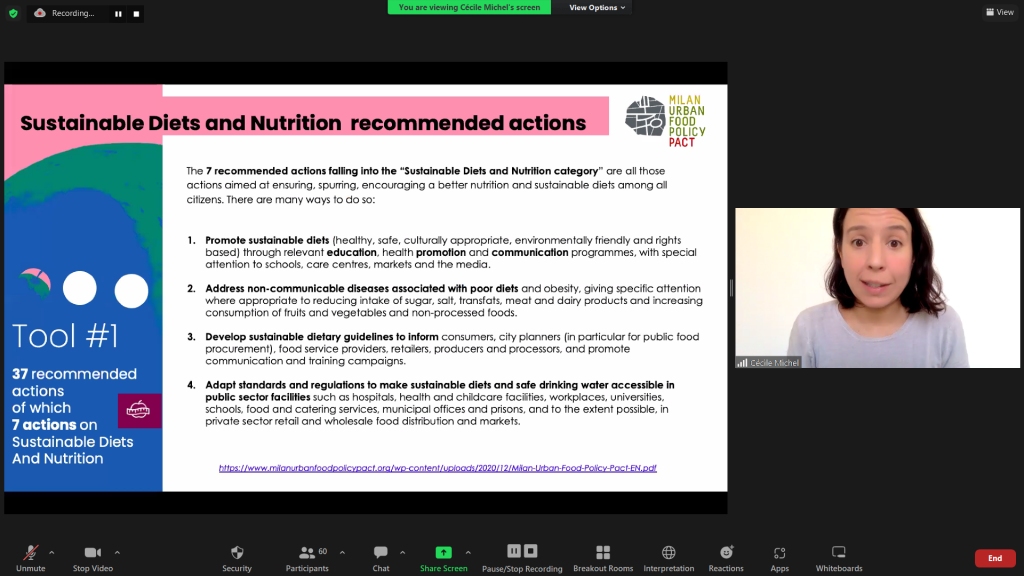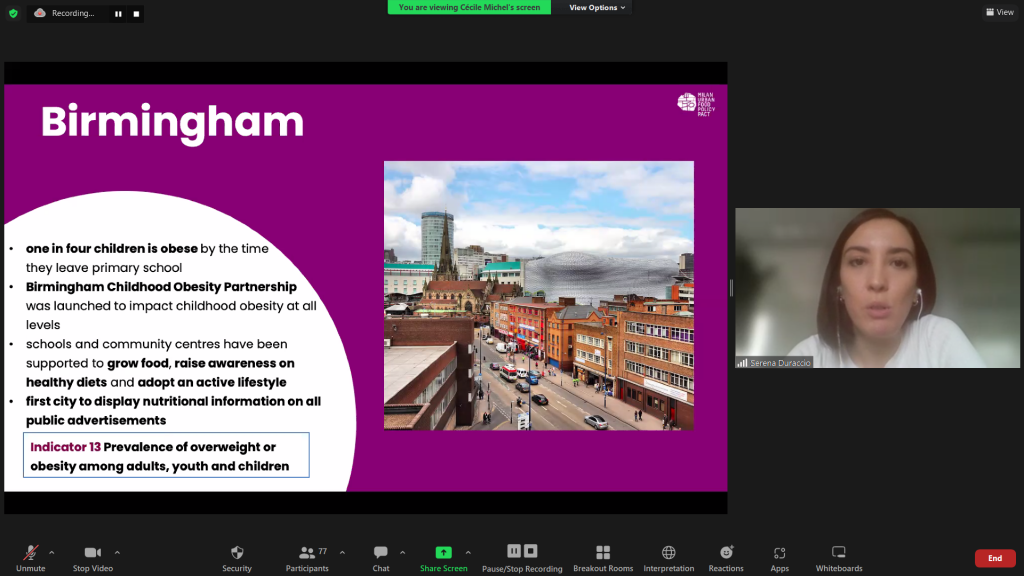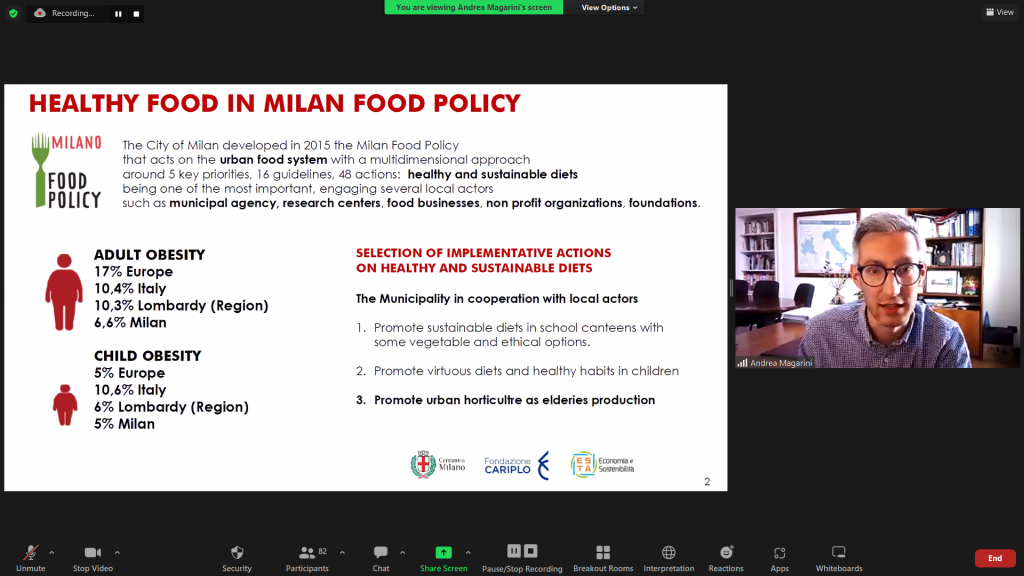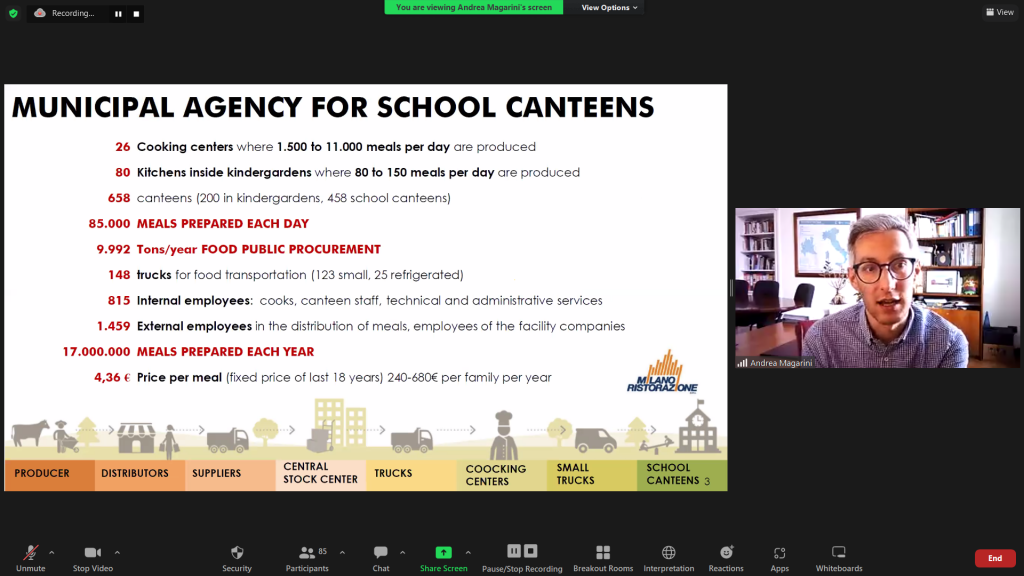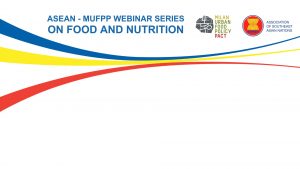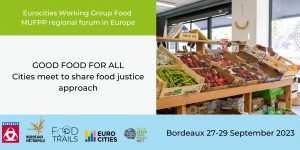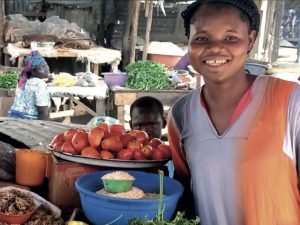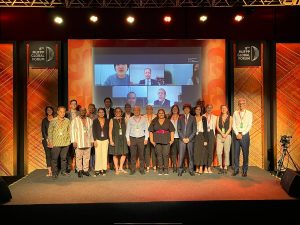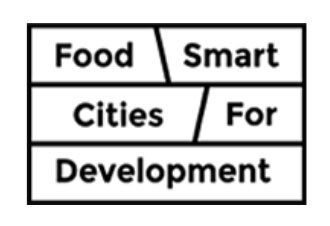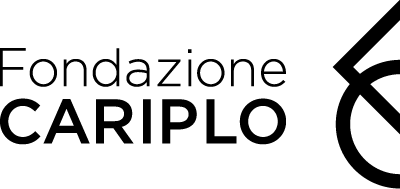In the last few years, the Milan Urban Food Policy Pact has been working hard towards the goal of strengthening its relations in the Asia Pacific region. This has been made possible, also, thanks to the International Urban and Regional Cooperation (IURC) programme, an EU funded project in which Milan has been selected to work with the Bangkok Metropolitan Administration for the following year.
On a broader spectrum, as mentioned before, Milan is and will be leading a cluster on urban food policy through the organisation of a series of webinars whose main character is the Asia Pacific.
On Tuesday, 24th May 2022 was held the second of six webinars each dedicated to one of the categories of Milan Urban Food Policy Pact under the umbrella of the Asia Pacific Food Policy Training thanks to the cooperation between the MUFPP Secretariat and the International Urban and Regional Cooperation (IURC) programme.
This time around, the webinar focused on Sustainable Diets & Nutrition. The webinar was a great success, with more than 100 participants, showing how food policy has become a priority for Mayors and how the MUFPP has taken over, as a beacon for the Asia Pacific region.
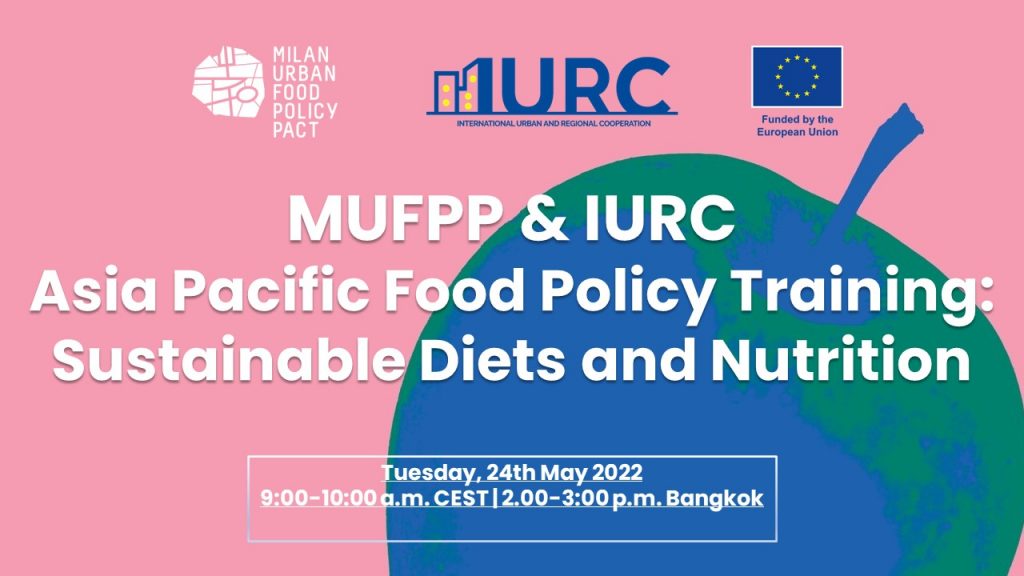
The webinar was structured as follows: a brief introduction to the theme by the MUFPP Secretariat, a presentation on some of the best practices in Europe, an in-depth presentation on what the city of Milan has been doing locally to guarantee a healthy diet, followed by Daegu’s take on Sustainable Diets & Nutrition, finishing off with a quick Q&A session and a how to apply to the Milan Pact Awards.
The MUFPP Secretariat introduced the topic, giving an overview of the 7 recommended actions falling in the Sustainable Diets & Nutrition category and the respective 12 indicators in order to provide a comprehensive framework of possible initiatives to be implemented in this field. Then, a small space was dedicated to best practices, in particular from the European cities of Birmingham and Grenoble.
Then it was time for the city of Milan to share its experience and how its journey towards sustainable diets started, first assessing obesity rates in Europe and locally. To address the issue, the Municipality took a stand and began to serve healthier foods in school canteens. Working with parents and their children to create a safer food network, Milan organises control commissions in school canteens to tackle food safety.
The city of Milan also promotes, in accordance to the Milan Pact recommended actions, the Morning Break with Fruit programme to create better eating habits in children.
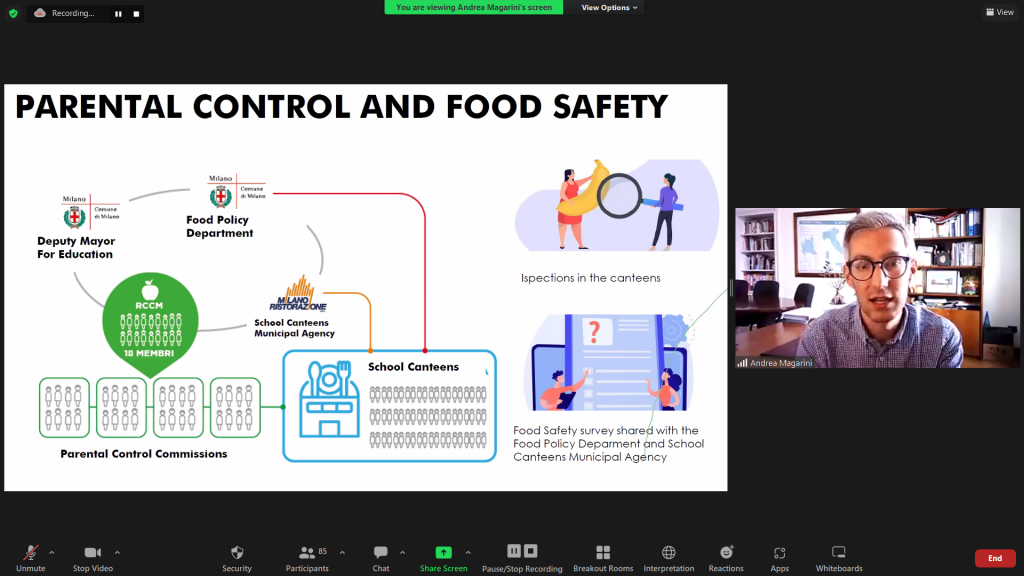
Easily appreciated was Daegu’s intervention. Daegu, representing the Republic of South Korea, partook in this webinar as a speaker to share its experience in the field with its “Fruit Snack for the Day-care” Programme.
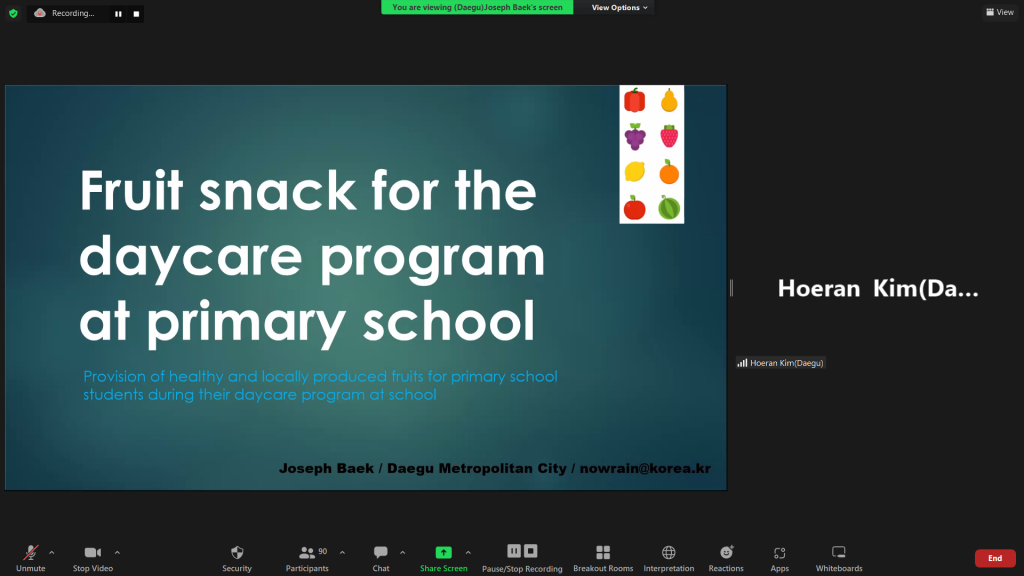
This programme, mainly targeting low-income families as well as single-parent families to name a few, has been of great impact, successfully managing in lowering child obesity rates. To tackle the problem, the Municipality provided eco-friendly agricultural products resulting in securing stable local consumers of locally produced fruits, contributing to a sustainable growth of the fruit industry and related industries, and, more importantly, helping students by improving their eating habits.
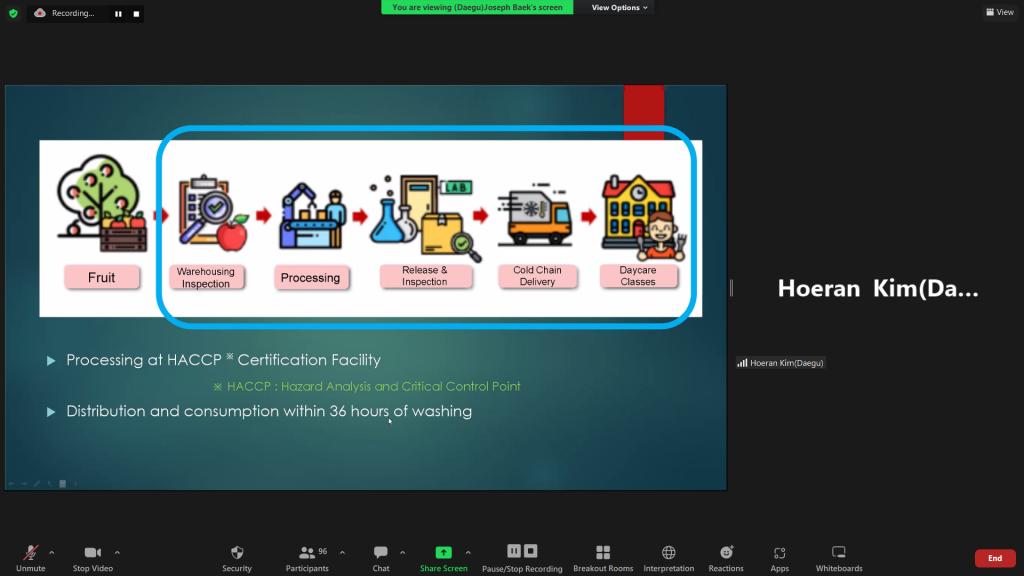
Exemplary were, also, the contributions from Tokyo Metropolitan Government’s representative and Bangkok Metropolitan Administration. Tokyo shared some of its main initiatives including: Tokyo’s Food Loss Reduction Plan implemented in early March 2021, the Long Life Project and the Demonstration Project all aimed at reducing losses. While Bangkok’s good practices include the online platform Thai school lunch for BMA that closely monitors nutrition data for each meal.
As mentioned, the last part of the session was dedicated to the presentation of the new Milan Pact Awards call. Filippo Gavazzeni, Head of the MUFPP Secretariat, provided participants with insightful information on how to apply to the MPA and few tips for cities wishing to submit their best practices!
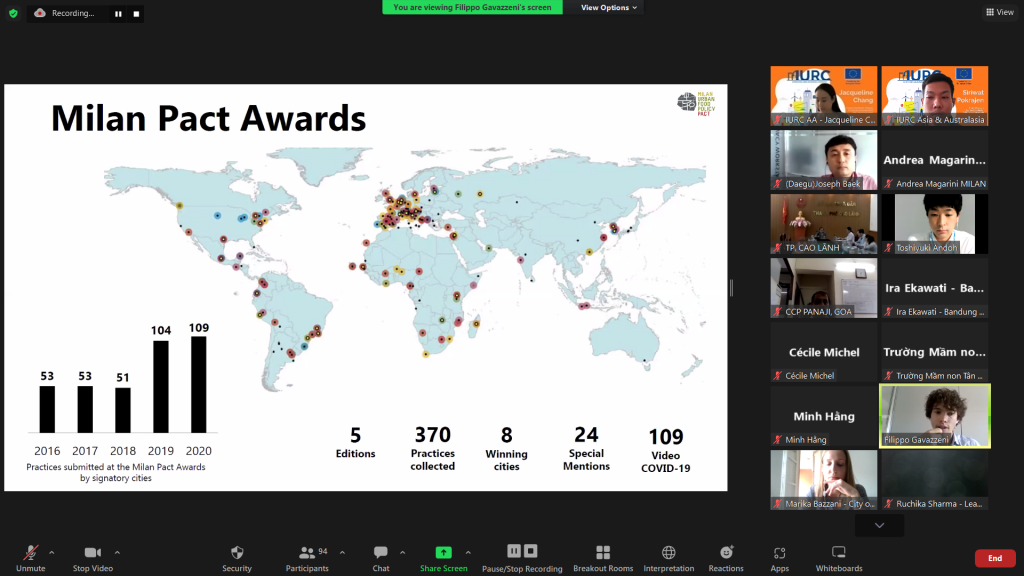
Thanks again for joining us for the session, it was wonderful to see so many of you interested in the topic.
In case you missed it, you can watch the session again here:
